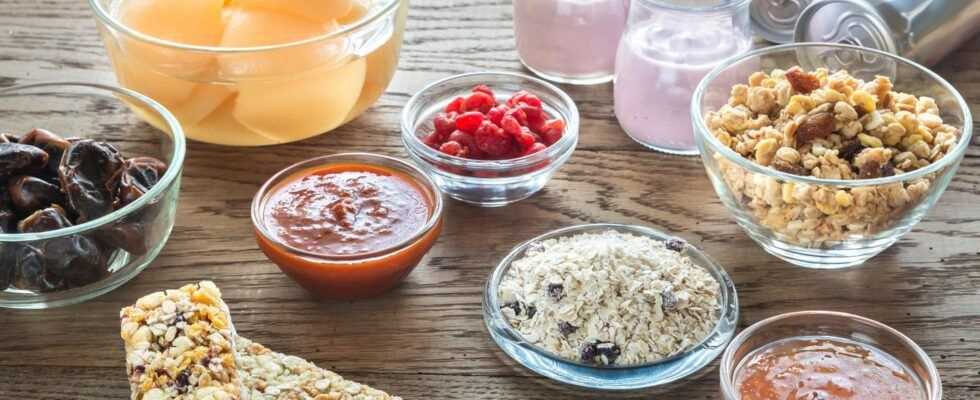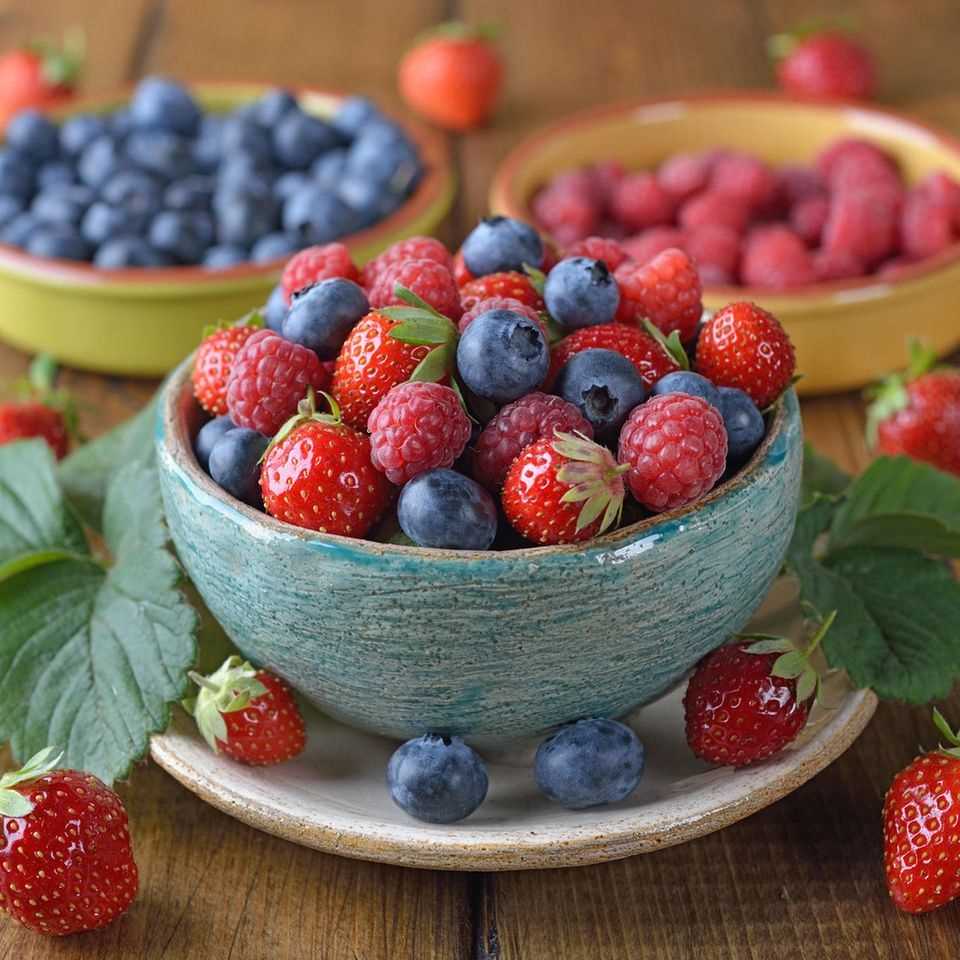Hidden sugar
These foods are secret sugar traps
© Alexander Prokopenko / Shutterstock
Large amounts of sugar can be very damaging to our health. The mean thing: Many foods that you wouldn’t suspect are often very sugary.
Fruit, juice, yogurt, muesli – that sounds like a healthy shopping list at first. But be careful: Some supposedly healthy foods are rich in hidden sugar. Either because you simply underestimate the sugar content or because the manufacturers cleverly disguise the sweetness as another ingredient. Heavily processed foods in particular are often real sugar traps.
If we eat too much sugar over the long term, this can have enormous health consequences. A high consumption of sugar promotes inflammation in the body and can promote diseases such as cardiovascular disorders, heart attacks, vascular or kidney damage and diabetes. And as we all learned as children, sugar also damages our teeth and can cause tooth decay.
The German Nutrition Society recommends a maximum of 50 grams of sugar per day. This amount is already contained in a glass of cola or orange juice, for example. We should therefore pay attention to which supposedly health-promoting foods contain too much hidden sugar.
What is hidden sugar?
Many food manufacturers use sugar as an additive, even in products in which one would not expect any sweetness. There are several reasons for this: Sugar extends the shelf life, improves the taste and consistency of some foods. In this way, manufacturers can save on more expensive – and often healthier – ingredients, such as real fruit in yoghurt.
The producers would of course have to list these ingredients – but they often use names that we cannot identify as sugar at first glance. This could be for example:
- Ingredients ending with “-ose” or “-sirup”, such as dextrose or maltose syrup
- Maltodextrin
- natural fruit sweetness
- Sweet whey powder, skimmed milk powder
- Barley malt, malt extract
These foods are particularly rich in hidden sugars
Fruits with a lot of sugar
Those who eat fruit usually want to do something good for their body, because fruits contain a lot of vitamins, fiber and minerals. But some varieties have a surprisingly high amount of sugar, which can make you sick in the long run. These types of fruit are particularly high in sugar:
- Dates: 63 grams to 100 grams
- Dried fruit: 40 to 60 grams per 100 grams
- Sweetened canned fruit: up to 44 grams per 100 grams
- Bananas: 17 grams of sugar per 100 grams
- Grapes: 16 grams of sugar per 100 grams
- Cherries: 12 grams of sugar per 100 grams
Juices & smoothies
What applies to fruit in its pure form or from cans is also true for juices and smoothies. Ready-made smoothies from the supermarket often contain a lot of hidden sugar. Some varieties contain up to 30 grams. It is worth taking a look at the list of ingredients here.
fruit yoghurt
Natural yogurt is a healthy, low-carbohydrate food. But those who find that too bland in terms of taste often go for yoghurts with fruit. And when it comes to sugar, they are often tough: there are often up to 14 grams of sugar for every 100 grams. Especially low-fat fruit yoghurt is anything but lightweight, because the lack of taste due to the fat is compensated for by sugar.
Salad dressings
Is a salad a healthy, low-calorie meal? That depends – especially the dressing. Because some salad dressings contain a lot of hidden sugar. You should be particularly careful with the light versions, because the reduced fat content is often replaced with sugar, as is the case with yoghurt. In French dressing, for example, there are around 16 grams per 100 grams.
Ketchup
The same applies to ketchup. Because although the tomato sauce tastes hearty, it contains a lot of hidden sugar. Depending on the type, ketchup can contain up to 30 grams per 100 grams.
Breakfast cereals & muesli
We consider cereals, muesli (bars) and the like to be a healthy breakfast, but the ready-made versions from the supermarket are often heavily sweetened. Crunchy mueslis in particular contain a lot of hidden sugar. They cost up to 24 grams per 100 grams.
Wine & sparkling wine
When it comes to sparkling wine or wine, one often thinks of alcohol as a harmful substance that we should rather enjoy in moderation. But the drinks also contain some hidden sugar. And here it is especially the lovely variants that are very sweet. On average, it contains ten times more sugar than in dry wines or types of sparkling wine.
water with taste
Many people consider flavored water to be a good alternative if they don’t like pure water but want to forego unhealthy soft drinks. Here, too, caution is advised, because such “infused water” often contains six grams of sugar per 100 milliliters of drink. It is better to add lemon wedges, berries or cucumber pieces to the water yourself for the flavor.
Sources used: dge.de, eatsmarter.de ,heil.at, codecheck.info


